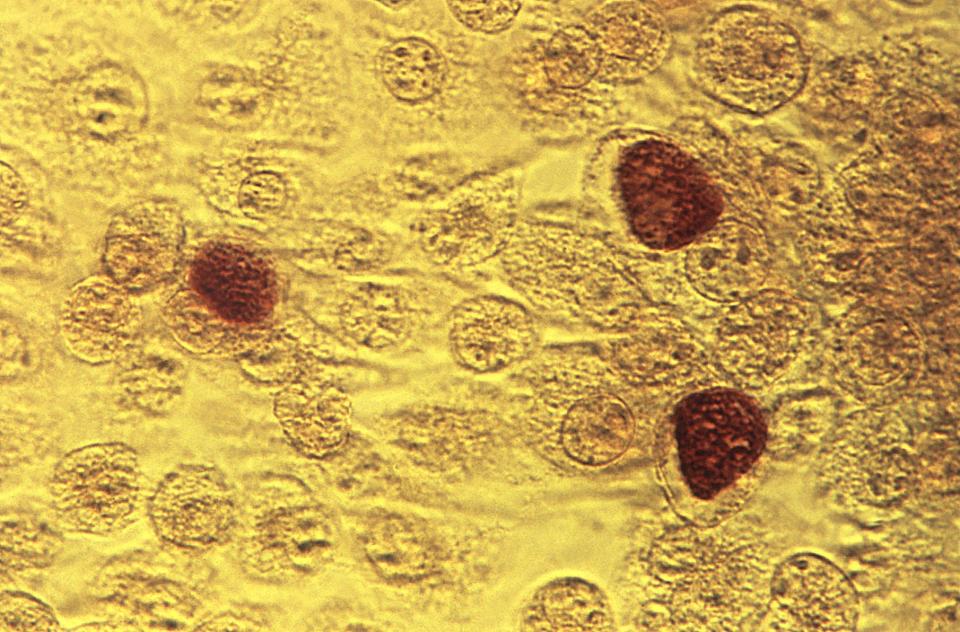STIs spike in Mississippi: Jackson ranks third in nation, according to new CDC data
Sexually transmitted infection rates are elevated in Mississppi, according to recently released CDC data.
The state as a whole and several cities including Jackson consistently ranked within in the top five when compared to cities nationally.
What is an STI?
Like its name implies, a sexually transmitted infection is transmitted primarily through sex. Colloquially, the terms STI and STD, or sexually transmitted disease, are often used interchangeably, but there is actually a clear distinction between the two.
All STDs start out as STIs. Once symptoms start to show, the infections are then classified as STDs.

STIs are associated with a variety of potentially damaging outcomes including chronic injuries, infertility, ectopic pregnancy and disrupted brain development. STIs such as gonorrhea, chlamydia and syphilis can lead to birth complications or infant mortality.
In 2022 alone, nearly 300 infant deaths were attributed to congenital sickle cases caused by syphilis.
In addition, STIs are linked with a increased likelihood of contracting HIV.

Mississippi ranks high
Here's where Mississippi ranked compared to other states in various categories in the 2022 CDC data:
Gonorrhea: Ranked first with 371.9 cases per 100,000 population
Chlamydia: Ranked second with 781.2 cases per 100,000
Syphilis (primary and secondary): Ranked fifth with 31.1 cases per 100,000
Syphilis (congenital): Ranked sixth with 207.6 cases per 100,000
A study by Innerbody analyzed the 2022 CDC data and ranked cities by STI rates. The highest rates in 2022 occurred in Philadelphia, Pennsylvania, followed by two major Southern cities: Memphis and Jackson.
Jackson ranked second in last year's Innerbody study. The South, the study notes, is continually high in STI rates compared to other regions.
Of the top 25 cities with high STI rates, 17 are in the South.
What experts say about the rise
The spike in STIs does not have one main cause, according to experts.
A significant factor in the increase may have to do with a decrease in STI services nationwide. Laura Bachmann, director of the CDC STD Prevention Division, pointed to the fact that STI services have been declining in the U.S. for several years, even before the clinic closures and reduced hours that came with the COVID-19 pandemic.
Thomas Dobbs, dean of the University of Mississippi Medical Center School of Population Health, said the decline is a national trend, but is more extreme in Mississippi.
"A lot of the time, things that are bad elsewhere are worse here," Dobbs said. "Part of it is a local phenomenon."
The local phenomenon is partly based on a lack of state funding. In 2016, Dobbs said, Mississippi had a 35% health care budget cut, following a years-long trend.
Race, ethnicity and financial status all play a role in the spread of STIs. The CDC's STI data consistently presents significant social and economic disparities. Historically, STIs disproportionately affect communities of color and those in poverty, both of which have less access to STI support and education.
In Mississippi, a state historically burdened by poverty, preventative healthcare essential to stopping the spike in STIs is harder to attain.
The underlying issue for these disparities, Bachmann said, is the stigma that surrounds STIs.
"STIs continue to be stigmatized," Bachmann said. "That stigma has quite an impact on patients and people and even providers in terms of their likelihood to address this topic in clinical settings."
Both Bachmann and Dobbs emphasized the need for a robust public health system to tackle these issues, something that Mississippi currently lacks.
"You got to have public health folks who can go out there and interrupt the chain of transmission," Dobbs said.
Dobbs, who formerly served as Mississippi's State Health Officer, said he has seen the state's team of disease investigation specialists drop drastically in number.
"It used to be we had about two (specialized) nurses in every county," Dobbs said. "Now, we have about one nurse for every two or three counties. The health department role has been drastically cut, and that's where a lot of STD work has traditionally been done."
A lot of Mississippi's preventative care, Dobbs said, has shifted to the private health sector. That shift means patients have to pay for STI services such as screenings and treatments, thus narrowing access for those in poverty.
Dobbs said Mississippi needs its political leaders and policy makers to step up.
"If all agency heads who touch the population can just do everything they can, it's not only going to prevent disease, it's going to help us in the future as far as future transmission," Dobbs said. "It really is a no brainer."
In addition, because of the stigma, younger sexually active individuals including teenagers are less likely to seek preventative care and treatment.
"(Young adults) are not empowered to understand what the risks are," Dobbs said.
Additionally, several STIs remain asymptomatic, making a wide spread more likely.
"Gonorrhea and chlamydia will sit around for weeks asymptomatic and it'll just sort of spread and spread and spread," Dobbs said.
Know how to prevent STIs
Raising awareness is the first step.
Because of the multitude of health risks associated with STIs, experts encourage those who are sexually active to read up on the ways to prevent STIs.
Bachmann suggested talking with a trusted healthcare provider to find the best ways to prevent STIs. She also encouraged open communication between sexual partners on safe sex practices. Getting tested for STIs regularly is key for any sexually active individual, especially those who are not in monogamous relationships.
Dobbs encouraged making STI testing a part of a regular health care routine. Many clinics offer free screenings. In the Jackson area, the Crossroads Clinic and several others offer testing without charge.
Additionally, Dobbs suggested talking to your regular private doctor about screenings.
"Be empowered to say, 'Hey, I need to get checked out just to make sure everything's OK,'" Dobbs said. "I think that is something that would be super helpful for people to take responsibility and get these things taken care of before it's shared with the partner or transmitted to the child."
Bachmann emphasized the need to meet people where they are, which is most often outside a clinic. In 2022, nearly 90% of syphilis cases nationwide were diagnosed outside of a traditional STI clinic setting.
"That tells us that we really need to work with health workers in a variety of setting to support control and prevention," Bachmann said. "That may include primary care. It may include emergency departments in the correctional healthcare facilities."
Treatment options are broadening. The first Food and Drug Administration approved at-home testing kits for detecting chlamydia and gonorrhea have already hit the market.
Bachmann said trials have produced promising results for new antibiotic gonorrhea treatments.
Still, Mississippi and the rest of the nation still has a long way to go.
"These are great developments," Bachmann said. "But, it it also very apparent that we need to continue innovation around the diagnosis, the treatment and the prevention of STIs."
This article originally appeared on Mississippi Clarion Ledger: STI rates spike in Jackson MS ranks third in new CDC data

